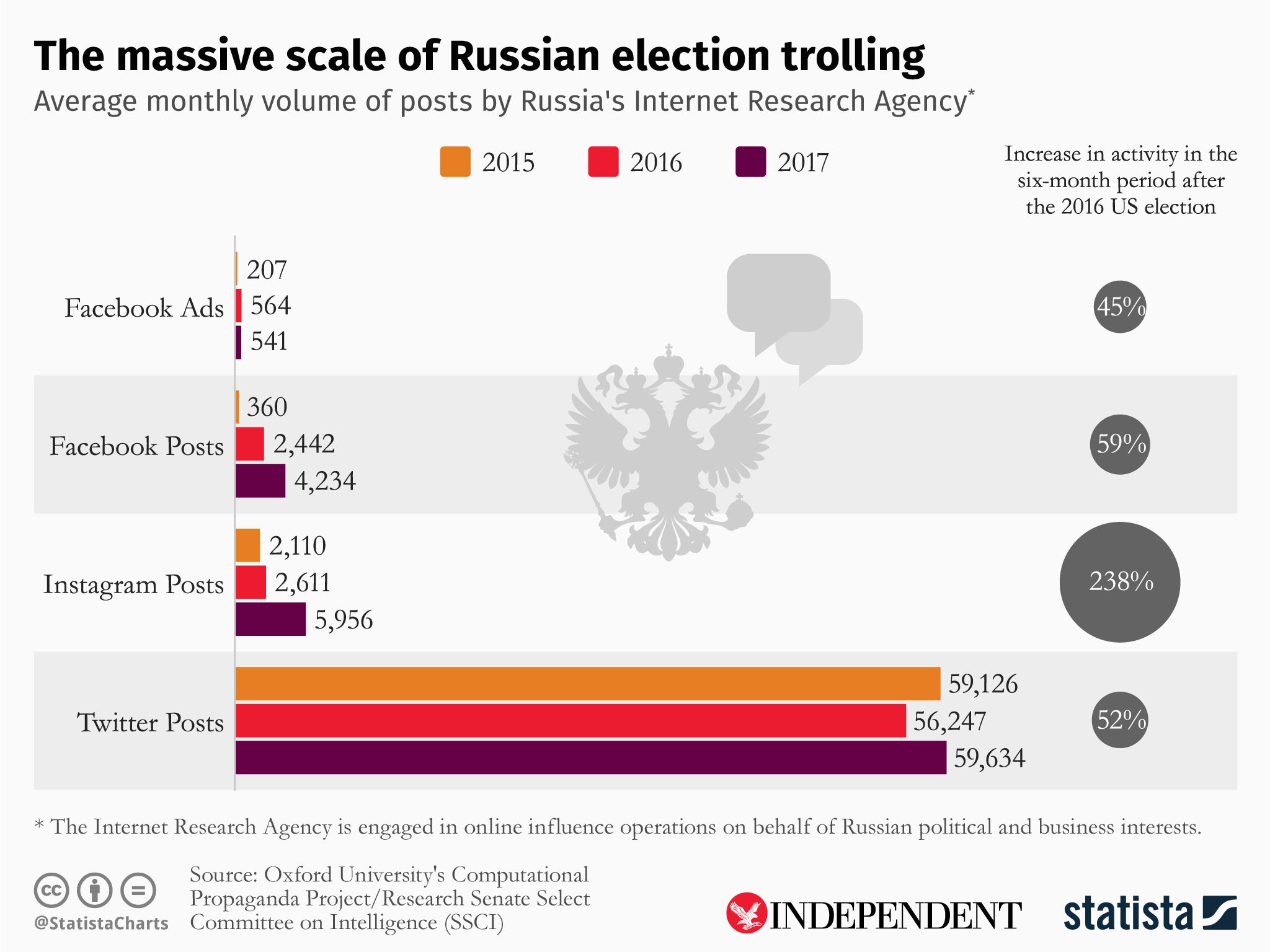Russia made use of almost every major social media platform to help elect Trump, says new report
Senate committee due to release report this week
Your support helps us to tell the story
From reproductive rights to climate change to Big Tech, The Independent is on the ground when the story is developing. Whether it's investigating the financials of Elon Musk's pro-Trump PAC or producing our latest documentary, 'The A Word', which shines a light on the American women fighting for reproductive rights, we know how important it is to parse out the facts from the messaging.
At such a critical moment in US history, we need reporters on the ground. Your donation allows us to keep sending journalists to speak to both sides of the story.
The Independent is trusted by Americans across the entire political spectrum. And unlike many other quality news outlets, we choose not to lock Americans out of our reporting and analysis with paywalls. We believe quality journalism should be available to everyone, paid for by those who can afford it.
Your support makes all the difference.Russia made use of virtually every major social media platform to help elect Donald Trump, according to the most detailed analysis yet of what played out during the 2016 election.
The report, a draft copy of which was obtained by the Washington Post, is said to be the first to study millions of posts provided by major technology firms such as Facebook and Twitter, to the Senate Intelligence Committee, led by Republican Richard Burr. The panel has not said whether it endorses the findings, but plans to release it publicly this week.
The report was conducted by Oxford University’s Computational Propaganda Project and analysis firm Graphika, and uses data from 2009 to 2017.
While it has been widely alleged that Russia, working through the Internet Research Agency, a Russian company, based in Saint Petersburg, used Facebook and Twitter to influence the election, little had previously been known of its alleged use of other platforms, including YouTube, Instagram, Google+, Tumblr, and Pinterest. It also looks at email accounts run by Google’s Gmail, Yahoo, and Microsoft’s Hotmail.
“What is clear is that all of the messaging clearly sought to benefit the Republican Party – and specifically Donald Trump,” the report says.

“Trump is mentioned most in campaigns targeting conservatives and right-wing voters, where the messaging encouraged these groups to support his campaign. The main groups that could challenge Trump were then provided messaging that sought to confuse, distract and ultimately discourage members from voting.”
Details of the report come as Robert Mueller continues to probe Moscow’s alleged interference in the US elections and possible collusion with the Trump campaign, something the president has repeatedly denied.
On Sunday, Mr Trump’s lawyer, Rudy Giuliani, said the president would sit and talk to the special counsel “over my dead body”.
In one of numerous tweets, Mr Trump wrote: “The Russian Witch Hunt Hoax, started as the “insurance policy” long before I even got elected, is very bad for our Country. They are Entrapping people for misstatements, lies or unrelated things that took place many years ago. Nothing to do with Collusion. A Democrat Scam!”

Join our commenting forum
Join thought-provoking conversations, follow other Independent readers and see their replies
Comments